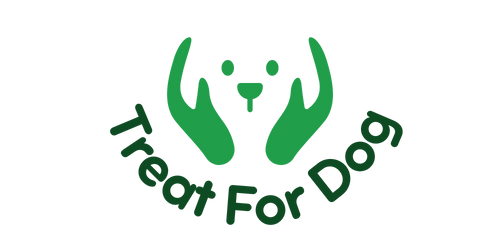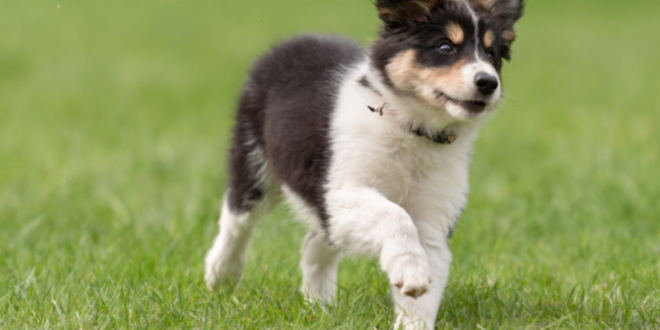How To Potty Train An Old Dog – Potty training an old dog might seem like a daunting task, but it’s definitely achievable. With patience, consistency, and a positive attitude, your furry friend can learn some new bathroom habits. Whether you’ve inherited an older dog or your pet’s bladder control has suddenly declined, this article will give you some helpful tips on how to potty train an old dog. So, get ready to roll up your sleeves and give your loyal companion the gift of a clean and comfy home.
Table of Contents
1. A New Lease on Life: Potty Training Your Senior Pup
Are you thinking about potty training your senior dog? It’s important to remember that it can be a bit more challenging than training a puppy, but it’s not impossible. Here are some tips that can help:
– Be patient: Your senior dog may have accidents, but getting angry or frustrated won’t help. Instead, practice positive reinforcement with treats and praise when they go outside.
– Establish a routine: Stick to a regular feeding and potty schedule, and take your dog outside to the same spot each time so they know where to go.
– Use belly bands or dog diapers: These can be helpful in preventing accidents while you’re still training your dog.
Remember, every dog is different, so it may take some time to figure out what works best for your senior pooch. But with a little patience and consistency, you can help your dog live their best life in their golden years.
2. Aging, But Not Helpless: Tips for Potty Training Older Dogs
Older dogs may find it harder to learn new things, but that doesn’t mean they are helpless. Potty training an older dog requires patience, consistency, and understanding of their capabilities. Here are some tips to help you potty train your senior dog:
– Schedule regular potty breaks: Older dogs may not have as much control over their bladder and bowels as younger dogs, so it’s important to take them outside for potty breaks often. Aim for at least every 2-3 hours during the day. Be sure to reward them with praise and treats when they go potty outside.
– Use positive reinforcement: Older dogs may not respond well to punishment or scolding. Instead, use positive reinforcement to reward good behavior. Praise and treats will go a long way in encouraging your senior dog to go potty outside.
– Consider using pads or diapers: If your dog has frequent accidents or has mobility issues, using pads or diapers can be a helpful solution. There are many options available, including washable pads and disposable diapers.
Remember that potty training an older dog may take more time and effort than training a younger dog. But with patience and consistency, your senior dog can learn to go potty outside and continue to enjoy a happy, healthy life by your side.
3. Patience is Key: Navigating the Challenges of Potty Training Mature Dogs
When it comes to potty training mature dogs, a key factor to keep in mind is patience. It may take some time for your dog to adjust to their new routine, but with consistency and perseverance, they will eventually learn the ropes. Here are some tips to help navigate the challenges of potty training mature dogs:
– Create a consistent schedule: Designate specific times during the day for your dog to go outside and use the bathroom. Stick to this routine as much as possible, so your dog knows what to expect. Be sure to take them out first thing in the morning, after meals, and before bedtime.
– Supervise your dog: Keep a close eye on your dog while they’re inside, and watch for signs that they need to go outside. If you notice them sniffing around, circling, or whining, take them out right away.
– Reward good behavior: When your dog goes outside and uses the bathroom, give them lots of praise and treats. This positive reinforcement will encourage them to keep up the good work.
Remember, accidents will happen, and it’s important not to get frustrated. Stay patient, show your dog lots of love, and eventually, they will become fully potty trained.
4. From Reluctant to Reliable: Reaping the Rewards of Teaching Old Dogs New Tricks
There’s a saying that goes, “you can’t teach an old dog new tricks.” But what if I told you that this isn’t really true? In fact, many people have been able to teach their old dogs new tricks with a little bit of patience, persistence, and positive reinforcement.
The same can be said for adults who are learning something new. While it’s true that learning can be more challenging as we age, it’s not impossible. In fact, there are some great benefits to learning new things as an adult. Here are just a few:
– Increased brain plasticity: The brain is capable of changing and adapting throughout our lives. Learning new things can help keep the brain active and healthy.
– Improved memory: Learning new things requires us to use our memory, which can help improve our ability to recall information in general.
– Greater sense of accomplishment: When we learn something new, we often feel a sense of pride and accomplishment that can boost our self-esteem.
So if you’ve been reluctant to try something new, whether it’s learning a new language, trying a new hobby, or exploring a new career, remember that it’s never too late to start. Go ahead and teach that old dog some new tricks – you just might be amazed at what you can achieve.
5. Embracing the Process: Celebrating Milestones in Potty Training your Old Furry Friend
Congratulations! Your furry friend is finally getting the idea of potty training. Here are some milestones to celebrate while embracing the process of training:
- The First Success: Celebrate the first time your furry friend successfully uses the designated potty area. This is a great accomplishment and a sign that your buddy is learning.
- Longer Intervals: The next milestone is when your pet can hold it for longer intervals. Give a pat on the back when they make it for a longer time period than before. Mark this in your notebook, so you can see the progress you both have made.
- Indications: Another milestone is when your pet starts indicating that they need to go outside. When they start whining, barking or scratching the door, it is a sign that they are about to go, and they want your attention. This is a significant accomplishment for both of you.
Embracing the process is key to making potty training successful. There will be accidents, setbacks, and moments of frustration, but keep in mind that it is all part of the process. Celebrate each milestone, no matter how small it may seem. Remember to use positive reinforcement to encourage constructive behavior. With some hard work and patience, your furry friend will be fully potty trained in no time!
Potty training your old dog may require more time and effort than when they were younger. As with any task, patience and consistency will be key to success. With dedication and some positive reinforcement, your pup should soon be acing potty training in no time!
 Treat For Dog – Brain Training for Dogs, Dog Training & Obedience Discover Treat For Dog and get your pup on the path to smarter, happier, and healthier living with brain training for dogs.
Treat For Dog – Brain Training for Dogs, Dog Training & Obedience Discover Treat For Dog and get your pup on the path to smarter, happier, and healthier living with brain training for dogs.




